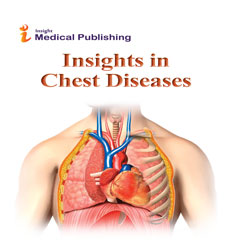Abstract
Hospitalization for COPD Exacerbation: An Opportunity for Azithromycin?
Hospital admission for COPD exacerbation is a frequent and costly event. Although preventing hospitalization is a key goal for patients and healthcare systems, the hospital admission represents an opportunity to optimize care. Daily azithromycin therapy has been shown to reduce COPD exacerbations, yet this therapy remains underutilized amid concerns for cardiac toxicity. We sought to evaluate the potential impact of initiating chronic azithromycin in appropriate patients during hospitalization for COPD exacerbation. We reviewed medical records from 808 patients admitted with COPD exacerbation who were currently receiving optimal inhaler therapy. To determine the potential impact of initiating azithromycin at hospital discharge, we recorded the number of hospital readmissions within the following year. We quantified the proportion of patients who were free of any of the contraindications proffered for chronic azithromycin therapy.
Results: Two patients were already receiving chronic azithromycin. Of 806 remaining patients, 51.4% of patients were readmitted to the same hospital within 1 year, and 7.4% had > 5 readmissions. Only 17.5% of the patients did not have any cardiac contraindications to azithromycin therapy and only 7.9% were free of contraindications and non-smokers. With regard to specific risk factors, 10.2% had baseline QTc prolongation, 65% were taking concurrent QTc prolonging medications, 32.8% had comorbid cardiovascular disease and 13.4% had a resting heart rate > 100 beats per minute.
Conclusion: Patients hospitalized for COPD exacerbation have a high rate of readmission within the following year, and could potentially benefit from the exacerbation-reduction effects of chronic azithromycin therapy. Unfortunately, an intervention designed to promote azithromycin initiation is likely to be low-yield, because the majority of hospitalized patients in our sample had a contraindication predisposing them to cardiac toxicity.
Author(s):
Brice T Taylor, Nidhi Patel, Shan Cheng, Allen Brown and Stephanie Parks Taylor
Abstract | Full-Text | PDF
Share this

Google scholar citation report
Citations : 60
Insights in Chest Diseases received 60 citations as per google scholar report
Abstracted/Indexed in
- Google Scholar
- Geneva Foundation for Medical Education and Research
- Secret Search Engine Labs
Open Access Journals
- Aquaculture & Veterinary Science
- Chemistry & Chemical Sciences
- Clinical Sciences
- Engineering
- General Science
- Genetics & Molecular Biology
- Health Care & Nursing
- Immunology & Microbiology
- Materials Science
- Mathematics & Physics
- Medical Sciences
- Neurology & Psychiatry
- Oncology & Cancer Science
- Pharmaceutical Sciences
